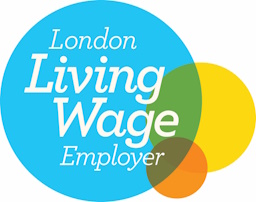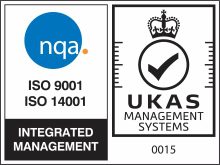The coronavirus pandemic tested business owners and demanded adaptability in the face of rapidly evolving Covid-19 trading restrictions. As the financial health of UK businesses took a severe blow, a series of government-backed loan schemes were introduced as an effort to prevent a surge of insolvencies.
Although this secured the short-term future of Covid-19 hit businesses, their long-term viability now depends on their ability to keep up with the associated repayments, sometimes in addition to loans that pre-date the Covid-19 pandemic. As we adapt to a new ‘normal’, businesses are operating more flexibly than ever having weathered the Covid-19 storm, but how can they strategically manage company debts to stay afloat?
How are UK businesses faring from the effects of Covid-19?
Insolvency statistics compiled by Real Business Rescue to assess the financial health of UK businesses found 562,500 SMEs in significant financial distress for Q3 2021 – a decrease of 12.6% from the previous quarter. In the West Midlands, over 66,500 SMEs were in distress which put 330,000 jobs at risk. The research also found that overall insolvencies increased by 21% from Q2 2021 as financial support from the government tapered to an end in Q3 2021.
For a business to remain viable, directors must take steps to address company debts and fend off pressure from creditors, which may take the form of persistent late payment notices or a winding up petition.
A winding up petition is a formal request made to the court by creditors to close a business that they suspect is insolvent. It can be very difficult to regain control of the situation once a winding up order has been granted by the court and your business could be forced into liquidation. For this reason, immediate action should be taken if your business is at a ‘tipping point’ with creditors to minimise the risk of this happening.
What options are available for financially distressed businesses?
If your business is facing financial difficulties, it is imperative that you seek professional advice at the earliest opportunity, to determine the most suitable route for your business. The earlier advice is sought, the more likely the chance of a business recovering from its financial difficulties. It is the role of a licensed insolvency practitioner to discuss your options with you and provide advice as to the best way forward.
Debt recovery – If you have a backlog of payments from customers that are long overdue, it may be appropriate to use commercial debt recovery services to recover funds. This can reduce the risk of bad debt, replenish company cash flow, and work as a deterrent against debtors that are lax about payment timeliness.
Finance options – It may be the case that a cash injection is required to strengthen the position of the business and assist with long-term financial recovery. Under the circumstances, it will be necessary for a debt-laden business to reassure lenders that it’s feasible for them to meet the ongoing repayment obligations. It may be an option to borrow against existing equity, allowing the business to access more competitive lending rates, also known as refinancing.
Repayment plans
CVA – A Company Voluntary Arrangement (CVA) is a formal insolvency procedure that provides the opportunity to negotiate with creditors and agree a schedule of repayments, which effectively breaks down the company debts into affordable monthly instalments. A CVA typically lasts 3-5 years, subject to agreement from creditors.
Time-to-Pay – If your main creditor is HMRC, you can negotiate a Time to Pay arrangement to structure the business’ tax liabilities into affordable monthly payments.
Company administration- Administration is an insolvency process which involves the management of an insolvent company being transferred to a licensed insolvency practitioner, acting as administrator. Administration gives you valuable time and legal protection to help steady the business, keeping it safe from creditor pressure and threats of winding-up action.
Company liquidation – If company debts have ballooned following Covid-19, company liquidation may be inevitable to protect the financial interests of creditors. As a company director, you must seek professional advice if you suspect that your business may be insolvent, i.e., if you cannot fulfil payments as and when they fall due and if your company liabilities outweigh assets.
If you are aware that your company is out of cash, you must cease trading. If you fail to do so, this could result in an Insolvency Service investigation.
For more information or to discuss any queries you may have, please do not hesitate to get in touch.
Michaela Daly is a director at Begbies Traynor Group’s Staffordshire office, UK’s leading corporate recovery and professional services firm. Michaela is an industry renowned insolvency expert in the West Midlands area and supports financially distressed company directors with company restructuring and liquidation options.
For a free, confidential consultation, please email Michaela Daly on michaela.daly@btguk.com.










You must be logged in to post a comment.